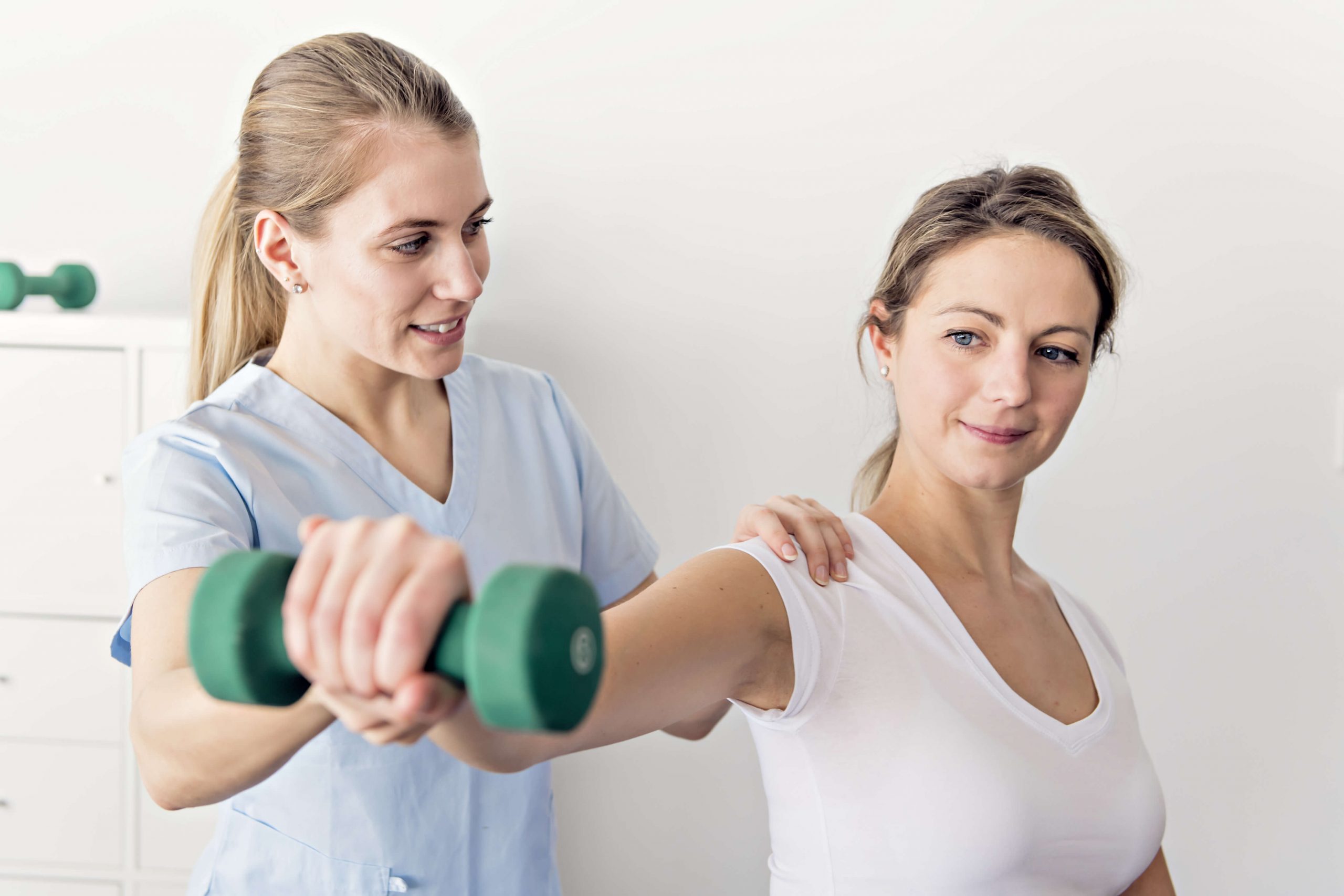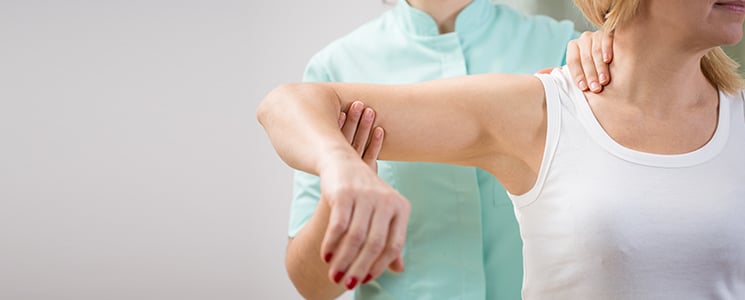
Physical therapy for shoulder injuries involve common problems like rotator cuff injuries, shoulder impingement, labrum tears, adhesive capsulitis, and shoulder bursitis.
Watch this video below to get exercises to resolve your pain now
Rotator Cuff Injuries
The rotator cuff (RTC), not the “rotator cup” as many of our patients refer to it as is made up of four muscles deep within the shoulder. The 4 muscles surround the shoulder joint and support the shoulder. The RTC works together to maintain shoulder stability. They pull the joint down and prevent the joint from sliding up with you reach for things. With improper posture and weakness in the shoulder blade muscles, you can injure the tendons of these muscles.
Treatment involves educating the patient on proper posture and shoulder blade control and strengthening the RTC. For more detailed anatomy of the injury click here https://www.bodysolutionsinc.com/library_shoulder_33
Shoulder Impingement
If the shoulder joint keeps sliding up or your shoulder blade is tilted anterior (slouched posture) you can sustain an impingement injury. Impingement describes the kind of injury but the structure that is injured can vary. Structures that can become inflamed include the bursa. Bursitis or inflammation of the bursa is just swelling of the bursa. The bursa is like a water balloon in the shoulder and functions as a cushion to minimize the two bones called the “head of the humerous” and the acromion from rubbing.
Frozen Shoulder or Adhesive Capsulitis

A patient with a frozen shoulder will have limitations in motion in all motions especially external rotation (like you are trying to get your seatbelt with your left hand) and then internal rotation (reaching behind your back).
Therapy can persist for month with the goal of restoring normal motion and strength of the shoulder.
Labrum Tear

The shoulder labrum is a ring of cartilage around the shoulder joint socket. It’s like the ring around the saucer dish for the tea cup to sit in. It prevents the tea cup from sliding around on the saucer dish. In your shoulder it prevent the joint from sliding around. An injury to the labrum would make your joint less stable. This injury is common in overhead throwers or people who dislocate their shoulders.
If you have any of the above conditions and need physical therapy Berlin NJ, contact us today at 856-751-8881 to schedule an evaluation. We will get your shoulder back on track immediately.










